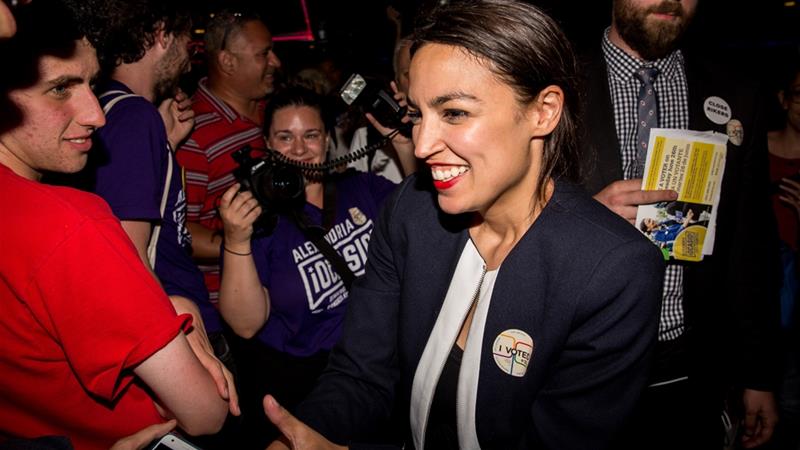In the United States, incumbents – politicians who once wore out the pavements of Washington, DC – often get re-elected. Research has documented that in some years well over 90 percent of incumbents seeking re-election have been successful. This is known as the “incumbency advantage.”
Having been elected to an office before buys a politician financial support, connections to influential people, and higher media coverage in future elections. While re-electing incumbents to an office can have benefits, it also limits electoral competition. Tall barriers of money and lack of communication channels push otherwise capable politicians away from running for office.
However, there’s a cheaper, grassroots way to reverse the incumbency advantage: social media.
Politicians and Social Media
Yesterday’s highly calculated, rarely-spotted-in-public politicians are replaced with their Twitter personas, expressing views on issues big and small, without putting them through much of a filter. Never have politicians been so accessible to the public.
Through their communication via social media, we do not just learn about politicians’ views on policy issues, but also about their lifestyle, family and pets, favorite sports team, or favorite local joint.
Let me formally introduce you to our new dog Buddy. Buddy is a big source of joy in our household. Like his “brother” @firstdogtruman he represents the many loving dogs in shelters who need homes. pic.twitter.com/UaDr4g0FAP
— Pete Buttigieg (@PeteButtigieg) December 19, 2018
Pete Buttigieg likes to talk about his two dogs. Senator Chuck Grassley tweets about the History Channel and the University of Northern Iowa Panthers games. So why do thousands of politicians, even the president of the United States, communicate through Twitter? What are the tangible benefits of using social media?
Twitter Accounts and Donations
With Maria Petrova and Ananya Sen, in an upcoming piece at Management Science, we tested if communicating on social media altered the support for a politician and if there were some losers and winners from this new world of political communication.
We measured support in the form of donations that politicians receive from ordinary citizens and tested if politicians were able to raise more donations after opening a Twitter account.
Americans donate to politics, and many do so in surprisingly small amounts: $25, $50, or $100. Given how little such donations can alter a race’s outcome, these donations symbolize a belief or a hope that, if there are enough others out there each donating a small amount, the result of an election can be changed. In a way, a donation is the sincerest form of support a citizen can show to a politician.
Looking at how the donations to politicians changed after they opened a Twitter account, we found an interesting result. Within a month of opening their account, the average politician saw a statistically and economically significant increase in the donations received. But new and experienced politicians benefited very differently from broadcasting to the public.
“Experienced” politicians – those who have been elected to a public office in the past – saw nearly no benefits. On the contrary, “new” politicians – those who had never been elected to a public office before – saw a significant increase in donations received upon opening a Twitter account, up to 6 percent of what they can expect to raise in one year of campaigning.
Social Media and Political Competition
However, the most immediate benefit of social media is that it gives politicians a “low cost” battleground to compete, communicate, and make themselves known.
Newcomers like Alexandria Ocasio-Cortez would have had a hard time affording TV and newspaper ads, and perhaps could not run a successful campaign two decades ago. But with social media, even without spending advertising dollars, politicians can now find a way to communicate with their constituency. The ability to communicate with large audiences allows new, often money-bound politicians to find a voice.

When we look at politicians’ use of language and the returns associated with it, we find that donations are higher when a politician speaks more informatively (by including a hyperlink/URL sharing more information), uses a more inclusive language (using words such as “we” instead of “I”), and has a more “plugged in” communication style (referring to and responding to other tweets).
There is also a curious correlation between donations and using an “anti-establishment” language. Of course, perhaps there is more to communicating through social media. It may signal one’s character, such as being open or accountable, caring about others, or a desire to listen to them.
Regardless of the exact reason, new politicians’ ability to find support via social media communication is immensely important. With cheaper communication channels, the incumbency advantage can be reduced, and perhaps someday, reversed. And as political campaigns are becoming increasingly more expensive and the need to reach out to constituencies is becoming more vital, social media will undoubtedly play a more important role in determining electoral outcomes as it gives young politicians a platform.
Disclaimer: The views and opinions expressed here are those of the author and do not necessarily reflect the editorial position of The Globe Post.






















